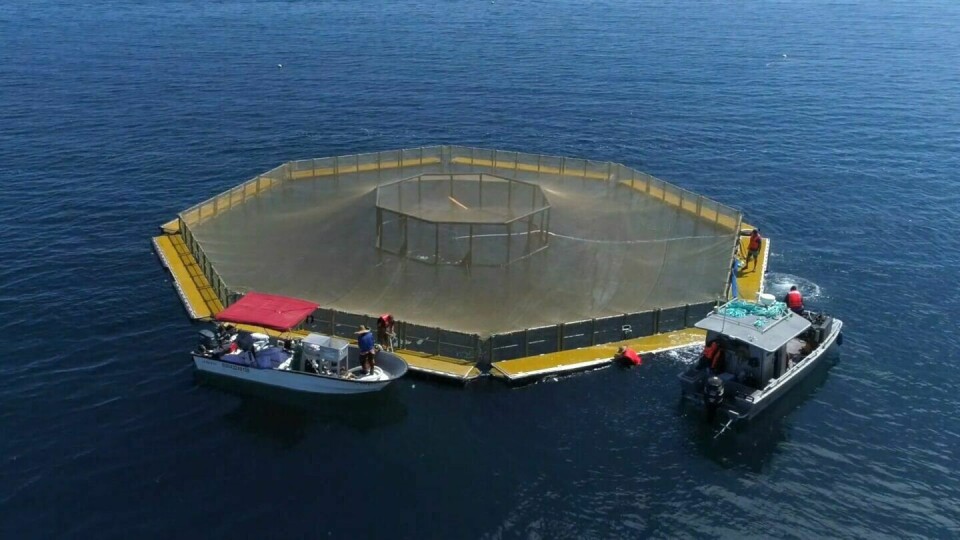
Army engineers pave the way for US fish farming expansion
Boston-based aquaculture supplier Innovasea has welcomed a new rule by the US Army Corps of Engineers authorising finfish aquaculture in federal waters.
Gaining permission from the Corps, which regulates development federal waters but had no specific provision for finfish aquaculture, has until now been one of most difficult parts of a long and disjointed permitting process that has frustrated the establishment of offshore aquaculture in the US.
In a significant move, the Corps has added seaweed mariculture and finfish mariculture to the list of activities covered by nationwide permits (NWPs). These are a type of general permit designed to regulate with little, if any, delay or paperwork certain activities in federally jurisdictional waters and wetlands, where those activities would have no more than minimal adverse environmental impacts.
The new NWPs are a response to an Executive Order issued by President Donald Trump last year to speed up the aquaculture permitting process.

Another positive step
“The Army Corps of Engineers’ decision is another positive step for the aquaculture industry in the United States and builds upon the momentum of the past year,” said Innovasea chief executive David Kelly, whose company’s products include submersible cages for offshore fish farming.
“The agency’s thorough review and deliberation has created a permitting process for open ocean aquaculture facilities in federal waters that is cognisant of environmental impacts and responsive to stakeholders without being needlessly burdensome to applicants.
“In recognising that ‘Finfish operators have … the same rights to use navigable waters as other users,’ the Army Corps’ new rule goes a long way toward levelling the playing field for the aquaculture industry in the US. That said, we encourage Congress to follow suit and pass bi-partisan legislation like the AQUAA Act to officially codify the country’s long-term approach to aquaculture. We’re hopeful that will happen in 2021.”
Reducing barriers
The Advancing the Quality and Understanding of American Aquaculture Act (AQUAA Act) was introduced by Minnesota Congressman Collin Peterson, a Democrat and chairman of the US House of Representatives, and Mississippi Congressman Steven Palazzo, a Republican, in March 2020. In September, companion legislation was introduced in the Senate.
Trump’s Executive Order, issued in May last year, was intended to increase coordination among agencies and clarify existing regulations to reduce barriers that currently limit offshore aquaculture in federal waters.
It also outlined regulatory reform to maximise commercial fishing, combat illegal, unreported and unregulated (IUU) fishing, and outlined a process for developing Aquaculture Opportunity Areas suitable for commercial aquaculture in federal waters.
However, Executive Orders can be rescinded, which is why aquaculture supporters want changes enshrined in legislation.























































